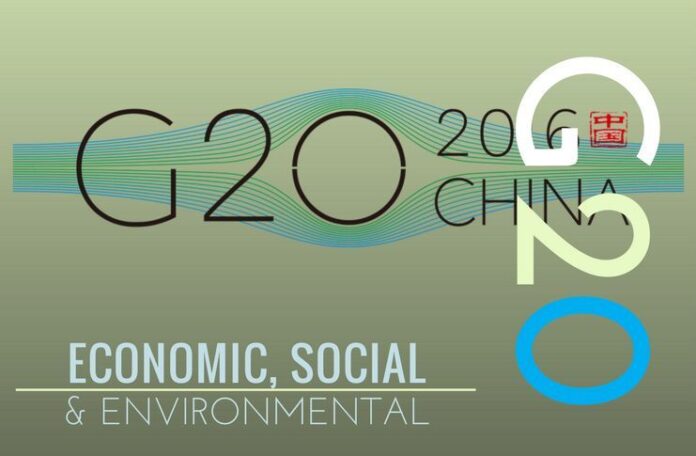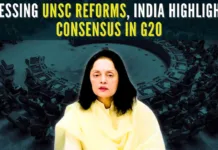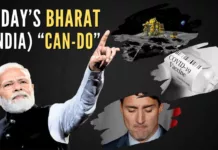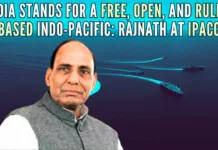
[dropcap color=”#008040″ boxed=”yes” boxed_radius=”8px” class=”” id=””]T[/dropcap]he guiding star of the Hangzhou meeting held in China on September 4th & 5th, 2016 was the 2030 UN Agenda for Sustainable Development. The UN statement was “a historic decision” on a “comprehensive, far-reaching and people-centred set of universal and transformational goals and targets.” The UN statement focused on the three dimensions of sustainable development: “economic, social and environmental.” The UN Agenda dealt with all forms of poverty and hunger, the creation of peaceful, just and inclusive societies, freedom from fear and violence, human rights and dignity, sound educational systems, and much more. Most governments pay attention to the decisions of the UN 2030 Agenda.1 Saudi Arabia, for instance, calls its national plan, “Vision 2030.”2
It was estimated that 77% of the Antalya goals had been achieved…
The brief 48-paragraph Hangzhou communique relies heavily on past statements and institutions to move forward at the Chinese pace of Sustainable Development. When the world economy is progressing slowly with much volatility, a well-designed coordinated policy of world governments is needed. All tools, monetary, fiscal and structural are needed to stabilize growth strategies, as was mentioned at the Brisbane summit.
It was estimated that 77% of the Antalya goals had been achieved.3 The Hangzhou Consensus felt that it should therefore deal with the remaining 23%. A new Industrial Revolution Action Plan (NIR) should harness science, technology and innovation (STI). Skills training for STI would be needed. The OECD, IMF, and other international organisations would gear STI and skills training for a range of businesses: micro, small, medium-sized, and corporations.
Just before the Hangzhou meeting, a Trade ministerial meeting was held in Shanghai on July 9 and 10. A Trade and Investment Group (TIWG) would deal with property rights and protectionism with the assistance of WTO, UNCTAD, and OECD. The World Customs Organisation would, amongst other issues, deal with faulty invoicing in trade.
[dropcap color=”#008040″ boxed=”yes” boxed_radius=”8px” class=”” id=””]T[/dropcap]he Hangzhou Consensus wanted the World Bank Group to be the Secretariat of the Alliance working closely with the Global Infrastructure Hub (GIH), OECD and other MDBs to stress diversification of financial instruments for infrastructure and SMEs and private-public risk allocation matrices.
China’s significant role in the G20 is camouflaged by the inclusion of decisions made in the past.
WHO, FAO, OIE and OECD were expected to deal with food, and health, and anti-microbial (AMR) issues. Other topics included were Basel III and total loss-absorbing capacity, green financing, replenishment of the 18th International Development Association and 14th Africa Development Fund. China is already the world’s leader in the green economy, although it still uses coal in which it had previously invested; China has already built 60% of the world’s solar heaters. Solutions to terrorism were also part of the communique.
China’s significant role in the G20 is camouflaged by the inclusion of decisions made in the past. The fact that G20 members also view these G20 meetings as a way of trying to solve bilateral issues, tends to minimize China’s role. Leaders from the US and Russia, for example, sought to seek a peace deal in Syria while meeting on the sidelines. Putin feared that the US was trying to isolate Russia from the world community. But since Putin met Theresa May of Britain and Turkey’s Erdogan, Russian fears of isolation evaporated.4 The Chinese authorities told its media to play down these bilateral issues while giving prominence to multilateral decisions. The Chinese went through much effort to make Hangzhou an admirable success: the public of Hangzhou were given a three-day holiday and had to vacate the city in order to avoid public protests and unforeseen terrorist activities or interest groups; entertainment with Swan Lake on the water was presented; and regrettably, Obama was deprived of a red carpet welcome to show that China had progressed from a “participator to a lead reformer.” The latter action was out of character for China and therefore unexpected.
However Obama displayed sportsmanship and played down the incident. He was accustomed to such insults at home. For example, one critic said Obama did not qualify to be an American President as he was born in Africa. On another day the same critic declared that Obama was born in the USA. Obama had to face the language of a businessman: yesterday’s was one interpretation and tomorrow’s was another, diametrically opposed. In business what is profitable is valid. China’s diplomatic insult was relatively mild and Obama was willing to take it on the chin for America.
[dropcap color=”#008040″ boxed=”yes” boxed_radius=”8px” class=”” id=””]B[/dropcap]esides, international etiquette trumps national. As Hangzhou was an international gathering it was imperative for China to treat all visitors civilly even though China may have had good reason to behave as it did. It is cold comfort to note that even the US misused its power on other occasions. In 1999, Afghan Vice President Abdul Rashid Dostum was refused entry to the US although he wanted to address UNGA on drugs and war. On another occasion, Iranian reporters who wanted to cover their leader at the 61st UNGA meeting were deprived entry into the USA.5
Years of preparation has enabled China’s RMB to be included, from October 1, 2016, in the IMF’s “basket of currencies.”
However, in order to find out China’s “distinctive stamp” on the G20 meeting one has to often read between the lines. Through its own experience in development, China has distilled five major development concepts: “innovation, coordination, green, openness, and sharing,”6 which need to be applied to the world. Innovation includes superb integrated management and the application of science and technology. Coordinated development would include an efficient use of resources and rebalancing uneven balances between urban-rural and diverse regions. China also learnt that as its yuan gains international status, its book-keeping has to be more open and it has to accept the dominance of markets in making economic decisions. It’s way of doing business internally and externally has to change to meet international standards.
Years of preparation has enabled China’s RMB to be included, from October 1, 2016, in the IMF’s “basket of currencies.” China has a representative on the IMF board. The yuan has gained international status and is at par with other major currencies like the pound, yen, euro and the dollar. In practice, the yuan is “market priced, based on exchange rates”.7 The yuan contribution is 10.92% of the IMF basket, lower than the US dollar and the Euro, but higher than the yen and pound. This is the first time that a developing country’s currency is given the same status as those of developed nations. With a short-term view, the Director of the IMF Christine Lagarde was given more importance in China than President Barack Obama, although almost all the international institutions of the past were sponsored by the US. By the end of August 2016, the World Bank issued $700 million three-year SDR notes in China’s inter-bank market, a distinct sign of confidence.8 Another indication of yuan’s strength was that towards the end of 2014, petro-dollar exports were negative for the first time in two decades, just as the petro-yuan was born.9
[dropcap color=”#008040″ boxed=”yes” boxed_radius=”8px” class=”” id=””]B[/dropcap]y 2016, the Bank of China was designated as an RMB clearing house in the US and ten other countries, Hong Kong, Macau, Taiwan, Germany, France, Malaysia, Hungary South Africa, and Zambia. This meant that China had a 24/7 clearing service around the globe. In 2015, for instance, the clearing services offered by the bank of China’s New York branch was worth $50 billion.
Thierry Meyssan13 confirmed what was already known, that China was building a new financial system to replace US leadership.
Another kind of blow to the dollar came when countries agreed to settle trade in their own currencies. During May 2016, for example, Russia agreed to supply China $400 billion worth of gas over 30 years to be paid for in both rubles and/or yuan.10 India and Iran, too, had a similar agreement. Iran agreed that India could pay for 13.14-18.11 million tonnes of its crude oil in rupees. Ucobank in India handled these payments, together with insurance problems with refineries.11 Iran was at a disadvantage since Indian imports are low and India will not allow Iran to invest in its securities and debt.
China also benefits from its aggressive push to build infrastructure projects in different parts of the world. China agreed to build a bridge over the border with Russia, an ice-free port in Russia’s Far East, and ground stations for satellite global-positioning navigation systems. China is also tapping the multilateral banks to build infrastructure in the industrial West. Apart from agreeing to invest £40 billion in Britain, China has offered to build two nuclear plants, one in Hinkley Point C and another in Sizewell, Sussex. 12 Taken together with China’s investment in US bonds, China is demonstrating fairness in investing worldwide. China’s aggressive moves to speed up global development was recognized by IMF leader Christine Lagarde who admitted that global growth so far had been “too low, for far too long, for too few.” China’s moves were therefore “ground-breaking achievements.”
Thierry Meyssan13 confirmed what was already known, that China was building a new financial system to replace US leadership. Modelled on the World Bank which has 183 members, China inaugurated the Asian Infrastructure Investment Bank (AIIB) which is expected to have more than 100 members by the end of the year. China also hopes to tap the Asian Development Bank, UK’s International Development bank, Europe’s Reconstruction and Development Bank for a project in Tajikistan. China also took the leadership in introducing the BRICs Development bank with 29.78% shares; India has 8.36%; Russia has 6.53%; 20 other members have 25% of the authorized registered capital amounting to $100 billion.
Meyssan14 quotes Larry Summers, former Secretary of the Treasury under Bill Clinton, who concluded that the US lost “its role as gatekeeper of the World Economic System,” in August 2016. The new “gatekeeper” would be China with a surplus of $3 trillion when the US national debt is $ 18.8 trillion.15 If corporate debt were included, US debt would be $60 trillion. The problem is that the US has, since 1950, been living on unsustainable debt without adequate backing. Financier Bill Bonner envisions a complete shutdown of the financial system, which seems unlikely.16 So, Professor Stephen Roach, Senior Fellow at Yale University and former Chairman of Morgan Stanley Asia, concluded appropriately that “no matter how you slice it, China remains the world’s major growth engine.” Roach adds that, “China’s contribution to global growth is, in fact, 50% larger than the combined .8% contribution likely to be made by all the so-called advanced economies.”17
[dropcap color=”#008040″ boxed=”yes” boxed_radius=”8px” class=”” id=””]W[/dropcap]hile Russia has been hit by two rounds of sanctions and expects a third, and with oil prices falling, it is strengthening its currency by buying gold. Russia has become the world’s largest purchaser of gold. In 2015, Russian gold reserves grew by $3 billion to $368 billion. China, too, increased its gold reserves from 2009 to 2015 by 6-8 tonnes a month, but in summer of 2015 it doubled its purchase. Russia also tries to increase its revenue by selling state of the art weapons, especially thermobaric and laser, which is expected to yield $18 billion in 2016, notes weapons journalist Jacques Borde.18
Despite the negatives that Russia is facing, Alexander Razuvaev notes that $1 billion of investment money flowed into Russia in August 2016 alone. This unusual but welcoming inflow kept the ruble relatively stable as the exchange rate dropped only 2%, the stock market, which depends mainly on foreigners, was stable and the financial results were good.19
Since the G20 countries contribute to 90% of the world’s GNP, it would appear that G20 would have a greater impact on world development than G7.
But China’s dominance in G20 is blunted by the fact that countries take the G20 meetings as an opportunity to settle bilateral issues. South African representative to Hangzhou Deputy Minister of International Relations and Cooperation Luwellyn Landers said that BRICs summit routinely held on the sidelines, always with China leading the G77. President Obama and Putin met too to discuss a ceasefire in Syria. Senegal President Mackey Sall met with the Chinese to discuss industrialization in Senegal and in Africa. Ambassador Landers felt more of such meetings should be held since they were very productive.20
Since the G20 countries contribute to 90% of the world’s GNP, it would appear that G20 would have a greater impact on world development than G7. But G7 consists of the former world leaders with the result that this organisation will continue to have a powerful influence. Rather than look at the G7, one has to consider the influences of the Beijing Consensus and the Washington Consensus that divide the world in dangerous ways; united, these two can have beneficial results for world peaceful development. This dangerous divide surfaced in the recent Syrian case in Aleppo.
[dropcap color=”#008040″ boxed=”yes” boxed_radius=”8px” class=”” id=””]A[/dropcap]fter many Kerry-Lavrov and Putin-Obama discussions, Russia and the US finally agreed to have a ceasefire in Aleppo, which is being reduced to rubble. US Air strikes for an hour breached the ceasefire and killed 83 Syrian soldiers that were guarding Deir ez-Zor airport. At least 120 were wounded. ISIS gained control of the base which they would not have, had there been no raid. The US, at the UN, admitted to the raid, apologized, and accused Russia for complaining when it had Syrian blood on its hands.21 “In the immediate wake” of US Airstrikes, said Canadian Professor Michel Chossudovsky, Russian warships fired three Calibre missiles at the foreign Officers coordination operations room in the north-western caves of Aleppo.22 The caves housed experts from US, Britain, Israel, Turkey, Saudi Arabia and Qatar; this is the Washington Consensus operating in Syria in favour of the rebels trying to oust President Assad. Thirty officers were killed though the Russian media reported a figure of eighty. A German reporter in Syria confirmed that an Al Nusra fighter told him that the “Americans are on our side,” and so is Saudi Arabia.23
US ambassador to the UN Samantha Power was furious, called the Russians “barbarians,” and blamed them for bombing the food and medical convoy to Aleppo.
US ambassador to the UN Samantha Power was furious, called the Russians “barbarians,” and blamed them for bombing the food and medical convoy to Aleppo. The Russians replied that there was only one barbarian on the loose and that was the US as events in Iraq and Libya showed.24
Opposed to the Washington Consensus is the Beijing-Moscow Consensus which is operating in Syria. In April, 2016, China entered Syria with humanitarian aid and offered military training while sending a special envoy Xie Xiaoyan to work for peace. The next visit was considered a milestone. On August 14, 2016, Rear Admiral Guan Youfei, head of China’s 2.3million armed forces and head of the office for International Military Cooperation under the Central Military Commission met with Syrian Defense Minister Fahd Jassim Al Freij, Russian Lt-General Sergei Chvarkov, head of the ceasefire monitoring mission in Syria, and top Russian commanders at Hmeimim base on the Syrian coast. This was the first official Chinese visit since September of 2015. China supplied sniper rifles and rocket launchers. China has shares in Syria’s two big petroleum companies, Syrian Petroleum Company and Al Furat Petroleum Company, and in other smaller oil companies. In addition to $10 billion existing contracts, China offered Syria $6 billion for investments. The Beijing Consensus includes the Shia Crescent, Russia, China, and Yemen, amongst others.25
This is not the first time that the US supported the bad guys. On September 19, 2016, eight Afghan police officers were killed and 26 wounded when US airships shot at the police who were fighting large Afghan troops. US intervention allowed the Taliban to escape. Afghan Minister of Interior Affairs General Taj Mohammad Jahid was annoyed and demanded a new contract with the US, but a large section of the Jurga was pro-American and would not support their General.26
[dropcap color=”#008040″ boxed=”yes” boxed_radius=”8px” class=”” id=””]T[/dropcap]he US and EU also emerged on the wrong side of Philippine President Rodrigo Duterte whose method of dealing with drug dealers in his country did not obtain the blessing of the two leading G7 members.27 Duterte had the backing of his people who were experiencing the type of behaviour that led to a fifty-year war in Colombia. Duterte allegedly killed without recourse to the judicial procedure about 40 people a day. Duterte used colourful language to show that the criticism against him was not justified. He was aware that the US needed bases in Mindanao and that the American pacification of the Moros in 1906 cost 1.4 million lives. Duterte felt that he had reached a “point of no return” and that he would not honour the 1951 treaty which required the Philippines to back the US in a maritime battle. Duterte was going to open new alliances that shifted loyalty from the G7 to the Beijing Consensus. Duterte asked China to build a railway in Mindanao and help to deal with the drug dealers, and he wanted Russia to defend the Philippines like it is doing Syria.28
Russia and China are now partners in Syria…
While the rupture between the US and the Philippines and Afghanistan is relatively minor, the Russian-Chinese combination in Syria is a major event which needs serious consideration. The Beijing Consensus is growing in stature and strength. Russia and China carried out the biggest naval exercises in the South China Sea. China vetoed in the UNSC the US desire to place sanctions against North Korea for firing three missiles towards Japan, landing 250 miles inside Japan’s air space. The tests should also worry the 28,500 US troops stationed in the region.29
Russia and China are now partners in Syria and the Russian view is that a Third World War is more likely to start with some minor incident linked to Syria. Events in future will suggest in which direction the world is headed. Recall that the Beijing Consensus was always behind the curve: SCO followed NATO, AIIB followed the Bretton Wood Twins, cyber-war was started by the USA, nuclear war began with Hiroshima and Nagasaki; Aleppo caves might signal a different trend. China’s desire to super-charge global development is admirable, creative, and daring.
Bibliography
- G20 leaders’ Communique Hangzhou Summit, 4-5 September 2016.
- “$1.3 trillion boost: Vision 2030 to spur trade and finance,” arabnews.com, September 26, 2016.
- Giancarlo Elia Valori, “China’s win-win with Russia at the G20 summit of Hangzhou,” russiainsider.com, September 16, 2016.
- Professor Andranik Migranyan was quoted in “G20 summit: Russia’s isolation turns into USA shameful fiasco,” pravadareport.com, 6.9.2016.
- Mathew Rosenburg, “Afghanistan’s Vice President is barred from entering US,” nytimes.com, April 15, 2016.
- Robert Lawrence Kuhn, “The five major development concepts,” chinadaily.com.cn, 23.9.2016.
- Chen Weihua, “RMB joins IMF basket, October 1, 2016,” chinadaily.com, 22.9.2016.
- Peter Krauth, Resource Investing Specialist, “How to safely get your share of the trillions about to flood Chinese markets,” MoneyMorning.com September 14, 2016.
- Tyler Durden, “The petro-yuan is born: Gazprom now settling all crude sales to China in Renminbi,” zerohedge.com, June 9, 2016.
- Alexander Razuvaev, “One billion USD capital flows into Russia in August 2016, despite sanctions,” russiainsider.com, September 16, 2016.
- PTI, “Iran agrees to take all oil payments from India in rupees,” timesofindia.indiatimes.com, July 14, 2013.
- Giancarlo Elia Valori, op. cit.
- Thierry Meyssan, “China is building a new financial system to replace US leadership,” russiadirect.com, September 11, 2016.
- Ibid.
- Michael Lewitt, Energy Advantage, September 28, 2016.
- Bill Bonner’s Agora Ltd.
- Team PG, “China remains the largest contributor to global growth, US expert says,” pgurus.com, August 31, 2016.
- “Russia and China buy tons of gold getting ready for dollar collapse,” pravdareport.com, 17.5.2016.
- Alexander Razuvaev, “One billion USD capital flows into Russia in August 2016, despite sanctions,” russianinsider.com, September 16, 2016.
- Team PG, “Emerging economies hope to get economic boost from G20 summit,” pgurus.com, August 23, 2016.
- Jason Ditz, “US bombs Syrian Army base in Deir Ezzor killing 83 troops,” anti-war.com, September 17, 2016.
- “Russia wipes out secret centre of Western coalition,” pravdareport.com.ru, 23.9.2016.
- Kölner Stadtanzeiger, September 27, 2016.
- “Russian Foreign Ministry responds to US accusations: the real barbarian is what you did in Libya and Iraq,” zerohedge.com, September 27, 2016.
- Andrei Akulov, “China joins Russia in Syria: shaping the new anti-terrorist alliance,” russiainsider.com.ru, September 22, 2016.
- “Afghanistan to cut relations with US,” pravdareport.com.ru, 23.9.2016.
- Lyuba Lulko, “Following Obama: Philippines President fucks EU,” pravdareport.ru, 21.9.2016.
- Manuel Mogato, “Philippine Duterte wants to ‘open alliances’ with Russia and China,” russiainsider.com.ru, September 27, 2016.
- J.J. Gallagher, “North Korea launches three ballistic missiles as Obama meets with G20 in China,” chinadaily.com.cn, September 5, 2016.
September 30, 2016.
Images will be deleted when commercialized; Source: chinadaily.com.cn
Obama denied this red carpet welcome G20 participants
G20 working towards UN’s Sustainable Development goals by 2030
Swan Lake on water, with music and background US Presidential race
Front row to BRICS, US, Turkey, & Germany, and a wider representation
Yuan as % of other major currencies in IMF
- Part2 – China’s Road to Superpower status - July 20, 2017
- Part1 – China’s Road to Superpower status - July 18, 2017
- P2 – Can or should Qatar be ostracised? - June 29, 2017











A bit of perspective on where India stands against the coercive and gradual imposition of China’s increased influence in world affairs, would help a great deal to balance the article.
Sure, the information in the article is a succinct summary of G20 summit and world polity affairs. However, the key question is (a) Where do India stand amongst all this and (b) When do we come out of “sandbagging” our influence and be seen as a serious player in world affairs and (c) Did we (the previous Govt) squander the impressive economic growth and influence in our region.
The way China is planning its future, slowly yet surely they will over whelm world with a dominance in trade,finance and surprisingly in innovation and technology.If the jokers who are running our govt. don’t take notice and react with necessary adjustments in speedy and transparant decision making to address basic issues of health,education,housing and financial security, in the next 20 years, Indians will be left with their middle finger in their mouth to chew on.We probably is the only the country who are happy to trod on with outdated ideas,processes and methods and still think that we are the greatest gift to the world.